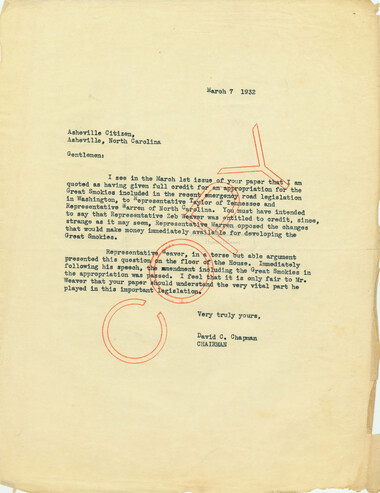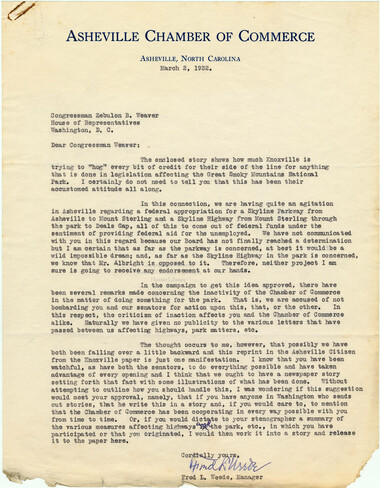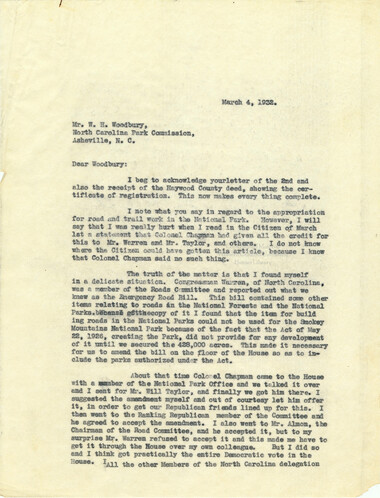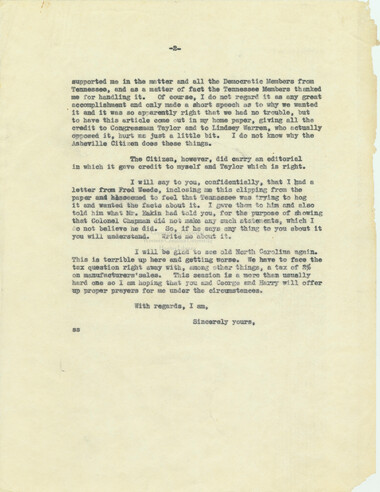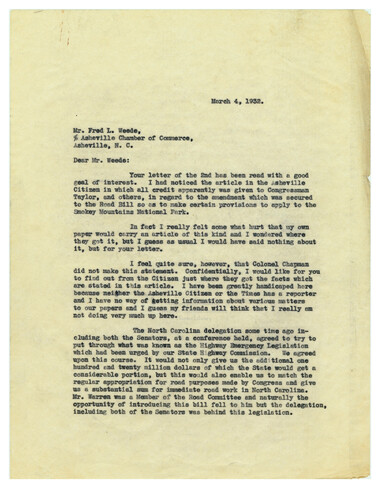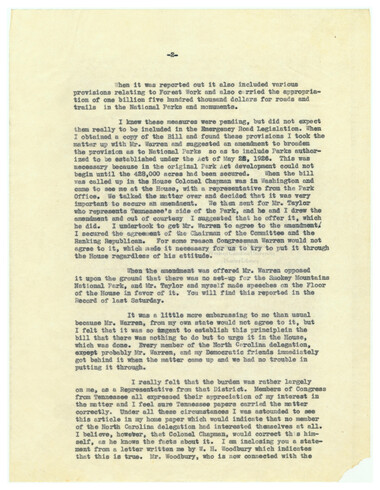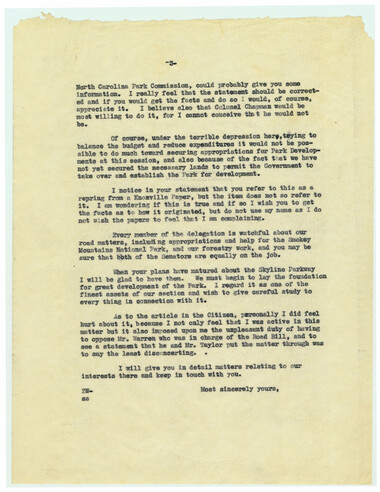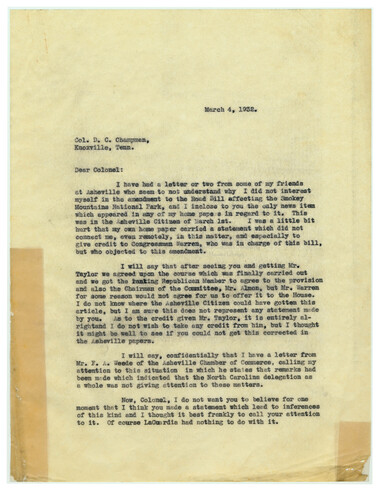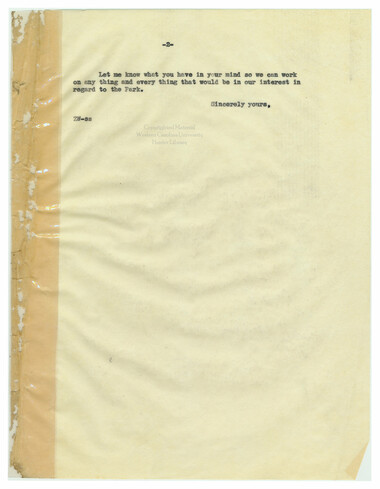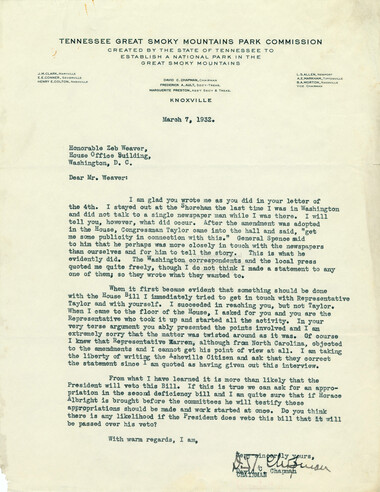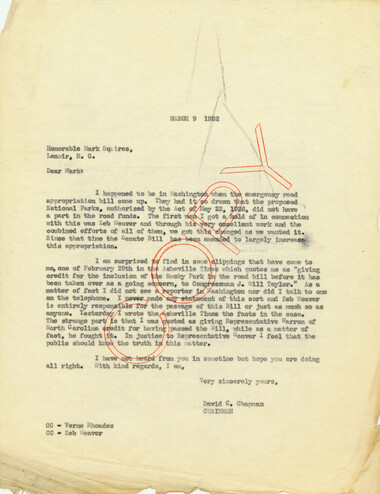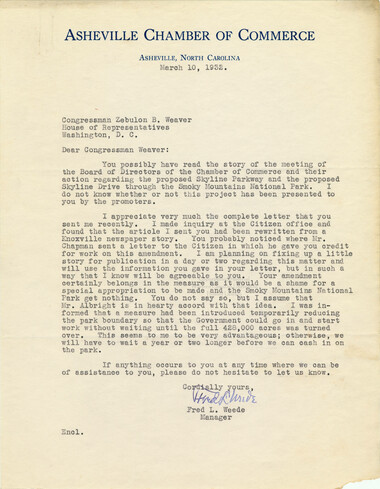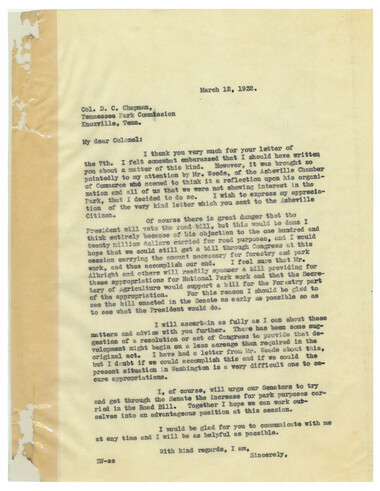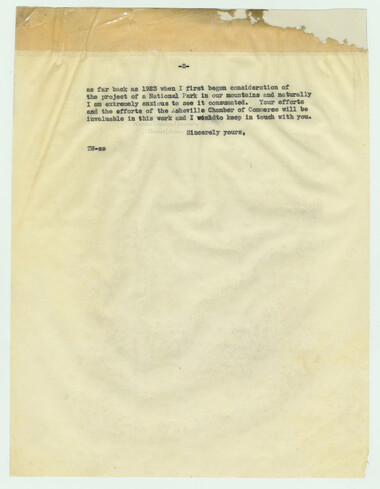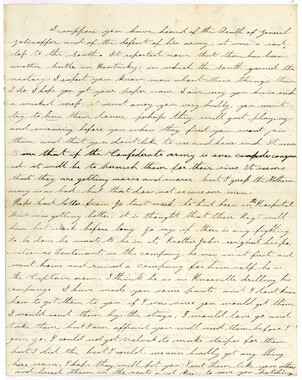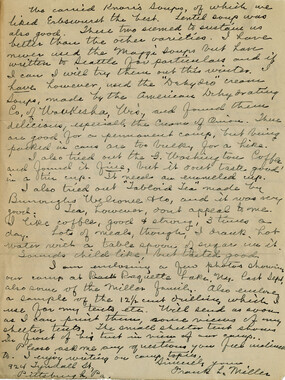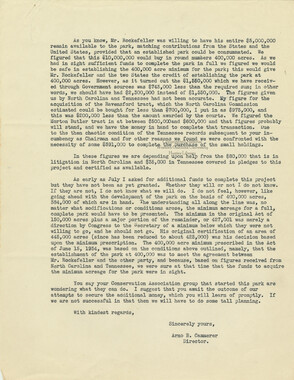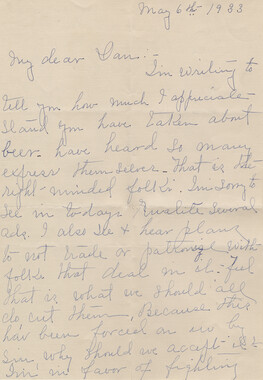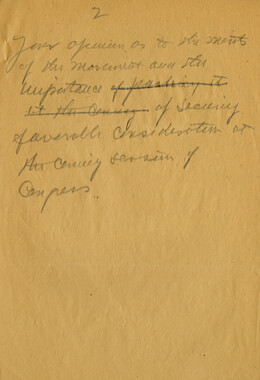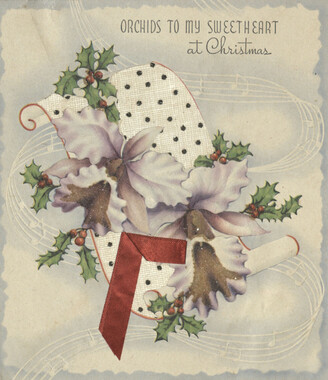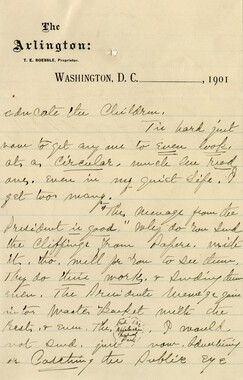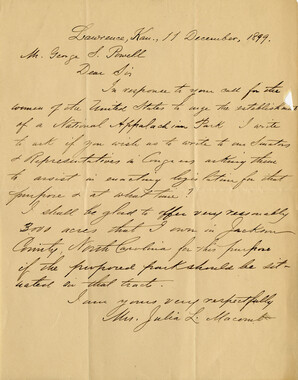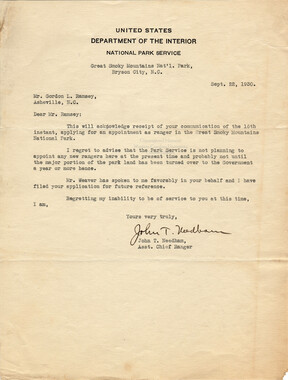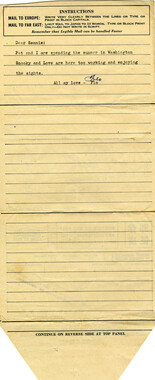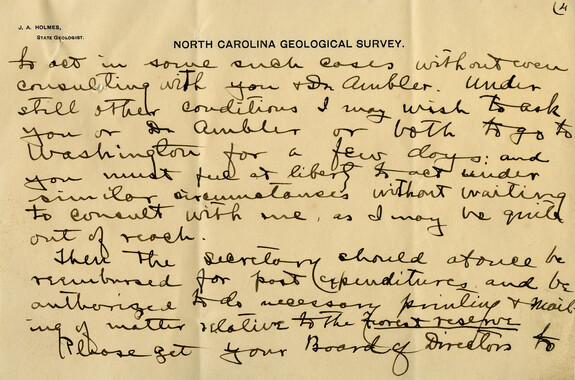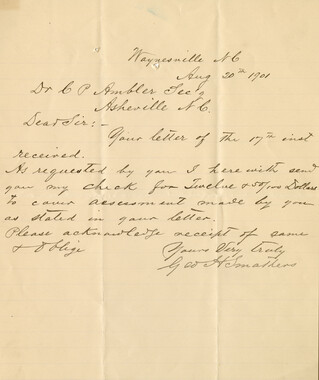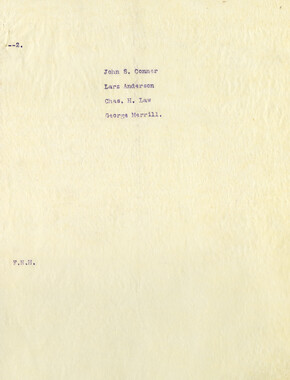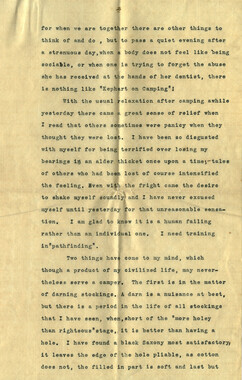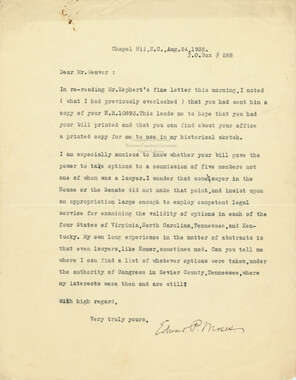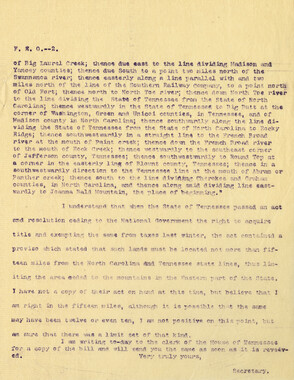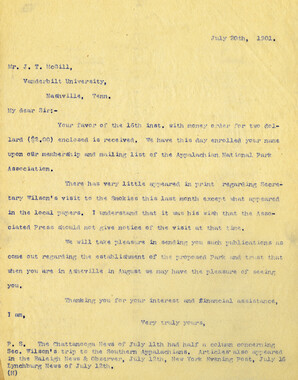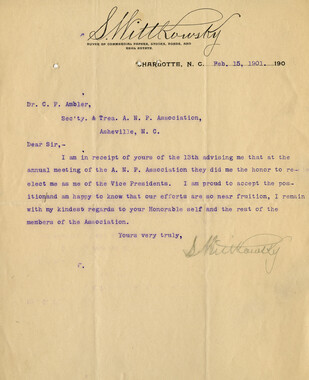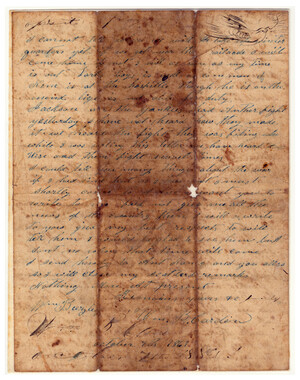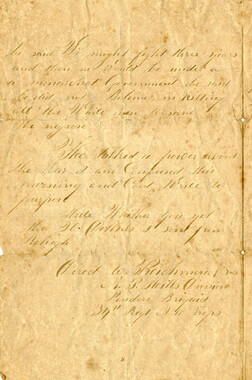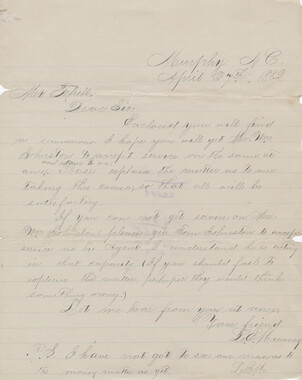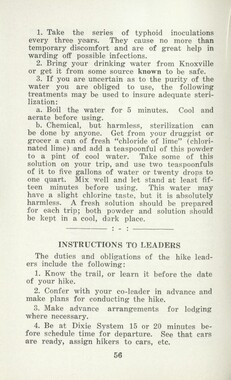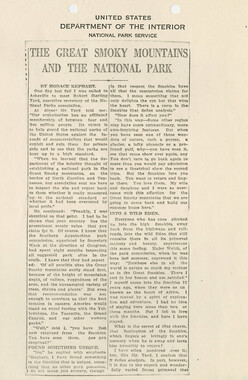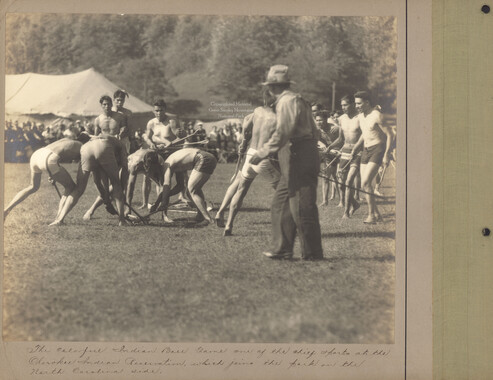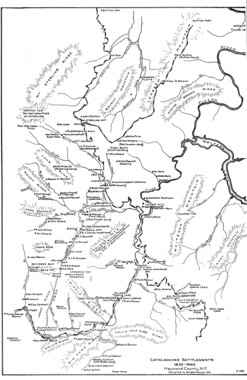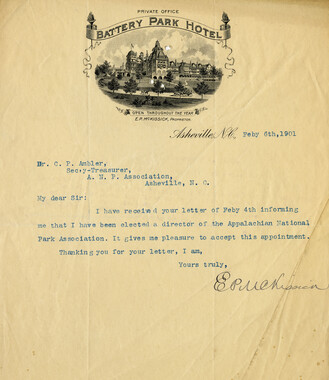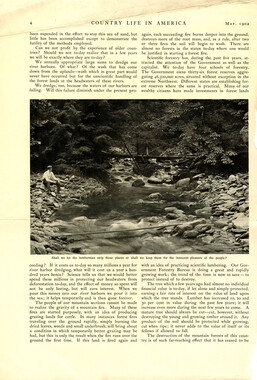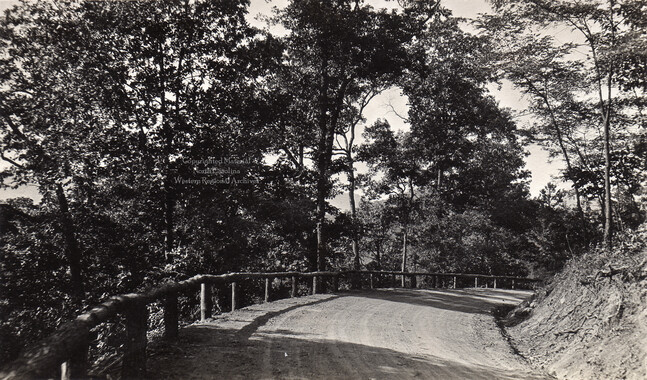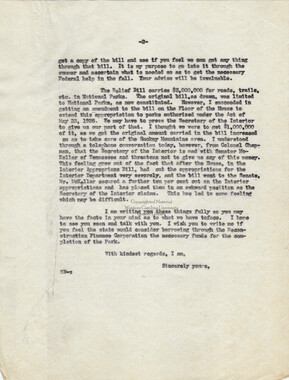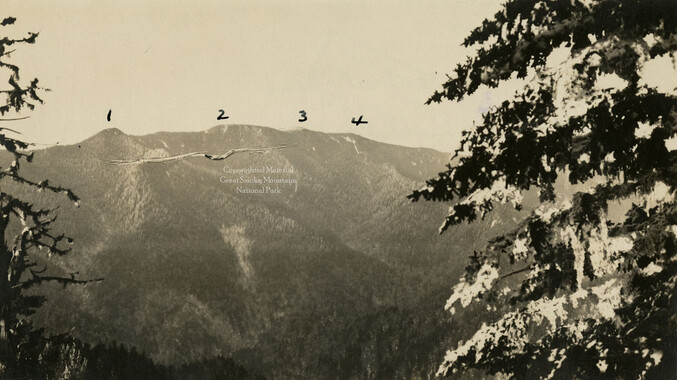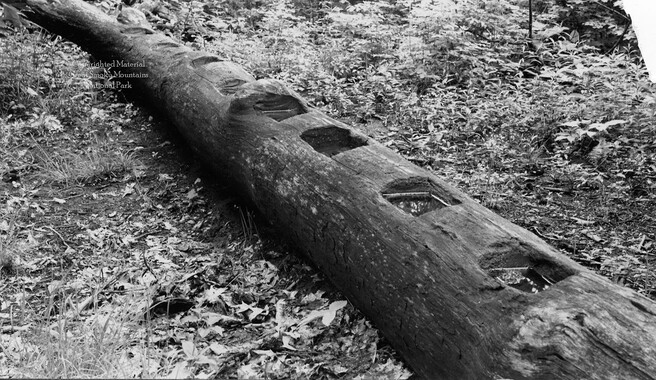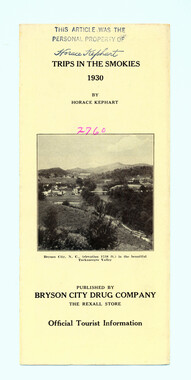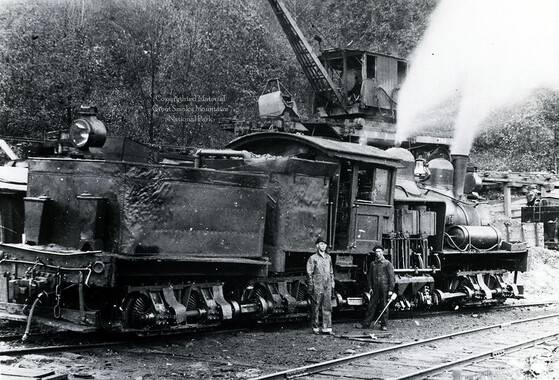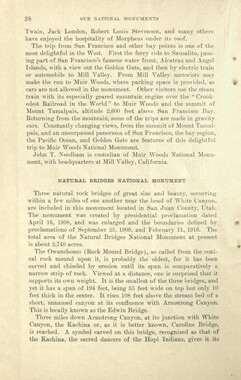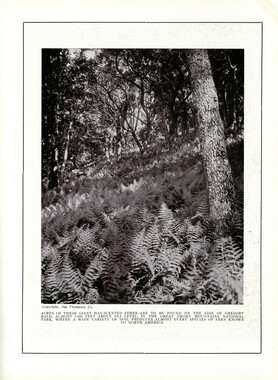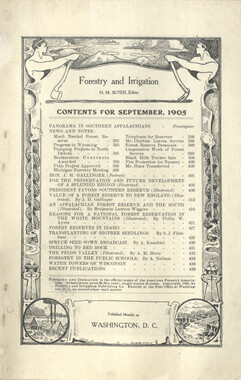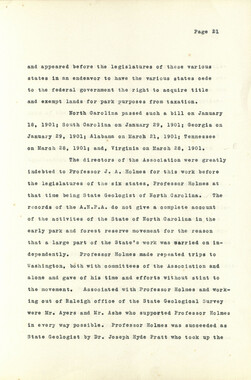Western Carolina University (20)
View all
- Canton Champion Fibre Company (2308)
- Cherokee Traditions (293)
- Civil War in Southern Appalachia (165)
- Craft Revival (1942)
- Great Smoky Mountains - A Park for America (2767)
- Highlights from Western Carolina University (430)
- Horace Kephart (941)
- Journeys Through Jackson (154)
- LGBTQIA+ Archive of Jackson County (19)
- Oral Histories of Western North Carolina (314)
- Picturing Appalachia (6679)
- Stories of Mountain Folk (413)
- Travel Western North Carolina (160)
- Western Carolina University Fine Art Museum Vitreograph Collection (129)
- Western Carolina University Herbarium (92)
- Western Carolina University: Making Memories (708)
- Western Carolina University Publications (2283)
- Western Carolina University Restricted Electronic Theses and Dissertations (146)
- Western North Carolina Regional Maps (71)
- World War II in Southern Appalachia (131)
University of North Carolina Asheville (6)
View all
- Appalachian National Park Association (53)
- Berry, Walter (76)
- Champion Fibre Company (5)
- Fromer, Irving Rhodes, 1913-1994 (70)
- Grant, George Alexander, 1891-1964 (96)
- Kephart, Horace, 1862-1931 (23)
- Masa, George, 1881-1933 (17)
- North Carolina Park Commission (105)
- Roth, Albert, 1890-1974 (142)
- Schenck, Carl Alwin, 1868-1955 (1)
- Stearns, I. K. (2)
- Thompson, James Edward, 1880-1976 (45)
- Weaver, Zebulon, 1872-1948 (55)
- Wilburn, Hiram Coleman, 1880-1967 (72)
- Allanstand Cottage Industries (0)
- Bennett, Kelly, 1890-1974 (0)
- Brasstown Carvers (0)
- Cain, Doreyl Ammons (0)
- Carver, George Washington, 1864?-1943 (0)
- Cathey, Joseph, 1803-1874 (0)
- Champion Paper and Fibre Company (0)
- Cherokee Indian Fair Association (0)
- Cherokee Language Program (0)
- Crittenden, Lorraine (0)
- Crowe, Amanda (0)
- Edmonston, Thomas Benton, 1842-1907 (0)
- Ensley, A. L. (Abraham Lincoln), 1865-1948 (0)
- George Butz (BFS 1907) (0)
- Goodrich, Frances Louisa (0)
- Heard, Marian Gladys (0)
- Kephart, Calvin, 1883-1969 (0)
- Kephart, Laura, 1862-1954 (0)
- Laney, Gideon Thomas, 1889-1976 (0)
- McElhinney, William Julian, 1896-1953 (0)
- Niggli, Josephina, 1910-1983 (0)
- Osborne, Kezia Stradley (0)
- Owens, Samuel Robert, 1918-1995 (0)
- Penland Weavers and Potters (0)
- Rhodes, Judy (0)
- Roberts, Vivienne (0)
- Sherrill's Photography Studio (0)
- Smith, Edward Clark (0)
- Southern Highland Handicraft Guild (0)
- Southern Highlanders, Inc. (0)
- Stalcup, Jesse Bryson (0)
- United States. Indian Arts and Crafts Board (0)
- USFS (0)
- Vance, Zebulon Baird, 1830-1894 (0)
- Western Carolina College (0)
- Western Carolina Teachers College (0)
- Western Carolina University (0)
- Western Carolina University. Mountain Heritage Center (0)
- Whitman, Walt, 1819-1892 (0)
- Williams, Isadora (0)
- 1810s (1)
- 1840s (1)
- 1850s (2)
- 1860s (3)
- 1870s (4)
- 1880s (7)
- 1890s (64)
- 1900s (294)
- 1910s (227)
- 1920s (461)
- 1930s (1585)
- 1940s (82)
- 1950s (15)
- 1960s (13)
- 1970s (47)
- 1980s (14)
- 1990s (17)
- 2000s (31)
- 2010s (1)
- 1600s (0)
- 1700s (0)
- 1800s (0)
- 1820s (0)
- 1830s (0)
- 2020s (0)
- Appalachian Region, Southern (80)
- Asheville (N.C.) (1)
- Avery County (N.C.) (6)
- Blount County (Tenn.) (159)
- Buncombe County (N.C.) (204)
- Cherokee County (N.C.) (10)
- Clay County (N.C.) (3)
- Graham County (N.C.) (108)
- Great Smoky Mountains National Park (N.C. and Tenn.) (416)
- Haywood County (N.C.) (263)
- Henderson County (N.C.) (13)
- Jackson County (N.C.) (58)
- Knox County (Tenn.) (21)
- Knoxville (Tenn.) (11)
- Lake Santeetlah (N.C.) (10)
- Macon County (N.C.) (25)
- Madison County (N.C.) (14)
- McDowell County (N.C.) (5)
- Mitchell County (N.C.) (7)
- Polk County (N.C.) (2)
- Qualla Boundary (22)
- Rutherford County (N.C.) (16)
- Swain County (N.C.) (516)
- Transylvania County (N.C.) (36)
- Watauga County (N.C.) (2)
- Waynesville (N.C.) (2)
- Yancey County (N.C.) (34)
- Aerial Views (3)
- Articles (1)
- Artifacts (object Genre) (4)
- Clippings (information Artifacts) (77)
- Drawings (visual Works) (174)
- Envelopes (2)
- Financial Records (9)
- Fliers (printed Matter) (34)
- Guidebooks (1)
- Interviews (11)
- Land Surveys (102)
- Letters (correspondence) (219)
- Manuscripts (documents) (91)
- Maps (documents) (69)
- Memorandums (14)
- Minutes (administrative Records) (20)
- Negatives (photographs) (282)
- Newsletters (12)
- Paintings (visual Works) (1)
- Pen And Ink Drawings (1)
- Photographs (1657)
- Portraits (39)
- Postcards (15)
- Publications (documents) (107)
- Scrapbooks (3)
- Sound Recordings (7)
- Speeches (documents) (11)
- Transcripts (46)
- Aerial Photographs (0)
- Albums (books) (0)
- Biography (general Genre) (0)
- Cards (information Artifacts) (0)
- Crafts (art Genres) (0)
- Depictions (visual Works) (0)
- Design Drawings (0)
- Facsimiles (reproductions) (0)
- Fiction (general Genre) (0)
- Glass Plate Negatives (0)
- Internegatives (0)
- Newspapers (0)
- Occupation Currency (0)
- Periodicals (0)
- Personal Narratives (0)
- Plans (maps) (0)
- Poetry (0)
- Programs (documents) (0)
- Questionnaires (0)
- Sheet Music (0)
- Slides (photographs) (0)
- Specimens (0)
- Text Messages (0)
- Tintypes (photographs) (0)
- Video Recordings (physical Artifacts) (0)
- Vitreographs (0)
- Appalachian National Park Association Records (336)
- Carlos C. Campbell Collection (282)
- Cataloochee History Project (65)
- George Masa Collection (89)
- Hiram C. Wilburn Papers (28)
- Historic Photographs Collection (236)
- Horace Kephart Collection (126)
- Humbard Collection (33)
- Jim Thompson Collection (44)
- Love Family Papers (11)
- Map Collection (12)
- R.A. Romanes Collection (10)
- Smoky Mountains Hiking Club Collection (616)
- Zebulon Weaver Collection (107)
- A.L. Ensley Collection (0)
- Appalachian Industrial School Records (0)
- Axley-Meroney Collection (0)
- Bayard Wootten Photograph Collection (0)
- Bethel Rural Community Organization Collection (0)
- Blumer Collection (0)
- C.W. Slagle Collection (0)
- Canton Area Historical Museum (0)
- Cherokee Studies Collection (0)
- Daisy Dame Photograph Album (0)
- Daniel Boone VI Collection (0)
- Doris Ulmann Photograph Collection (0)
- Elizabeth H. Lasley Collection (0)
- Elizabeth Woolworth Szold Fleharty Collection (0)
- Frank Fry Collection (0)
- Gideon Laney Collection (0)
- Hazel Scarborough Collection (0)
- Hunter and Weaver Families Collection (0)
- I. D. Blumenthal Collection (0)
- Isadora Williams Collection (0)
- Jesse Bryson Stalcup Collection (0)
- John B. Battle Collection (0)
- John C. Campbell Folk School Records (0)
- John Parris Collection (0)
- Judaculla Rock project (0)
- Kelly Bennett Collection (0)
- Major Wiley Parris Civil War Letters (0)
- McFee-Misemer Civil War Letters (0)
- Mountain Heritage Center Collection (0)
- Norburn - Robertson - Thomson Families Collection (0)
- Pauline Hood Collection (0)
- Pre-Guild Collection (0)
- Qualla Arts and Crafts Mutual Collection (0)
- Rosser H. Taylor Collection (0)
- Samuel Robert Owens Collection (0)
- Sara Madison Collection (0)
- Sherrill Studio Photo Collection (0)
- Stories of Mountain Folk - Radio Programs (0)
- The Reporter, Western Carolina University (0)
- Venoy and Elizabeth Reed Collection (0)
- WCU Gender and Sexuality Oral History Project (0)
- WCU Mountain Heritage Center Oral Histories (0)
- WCU Oral History Collection - Mountain People, Mountain Lives (0)
- WCU Students Newspapers Collection (0)
- Western North Carolina Tomorrow Black Oral History Project (0)
- William Williams Stringfield Collection (0)
- Appalachian Trail (22)
- Church buildings (9)
- Civilian Conservation Corps (U.S.) (91)
- Dams (21)
- Floods (1)
- Forest conservation (11)
- Forests and forestry (42)
- Great Smoky Mountains National Park (N.C. and Tenn.) (64)
- Hunting (2)
- Logging (25)
- Maps (74)
- North Carolina -- Maps (5)
- Postcards (15)
- Railroad trains (8)
- Sports (4)
- Storytelling (2)
- Waterfalls -- Great Smoky Mountains (N.C. and Tenn.) (39)
- African Americans (0)
- Artisans (0)
- Cherokee art (0)
- Cherokee artists -- North Carolina (0)
- Cherokee language (0)
- Cherokee pottery (0)
- Cherokee women (0)
- College student newspapers and periodicals (0)
- Dance (0)
- Education (0)
- Folk music (0)
- Forced removal, 1813-1903 (0)
- Gender nonconformity (0)
- Landscape photography (0)
- Mines and mineral resources (0)
- Paper industry (0)
- Pottery (0)
- Rural electrification -- North Carolina, Western (0)
- School integration -- Southern States (0)
- Segregation -- North Carolina, Western (0)
- Slavery (0)
- Weaving -- Appalachian Region, Southern (0)
- Wood-carving -- Appalachian Region, Southern (0)
- World War, 1939-1945 (0)
- Sound (7)
- StillImage (2172)
- Text (655)
- MovingImage (0)
Correspondence between Zebulon Weaver, Fred L. Weede, W. H. Woodbury, David C. Chapman, Mark Squires, Junius G. Adams, March 1932
Item
Item’s are ‘child’ level descriptions to ‘parent’ objects, (e.g. one page of a whole book).
-
-
Maroh 7 1932 Asheville Citizen, Asheville, North Carolina Gentlemen} I see in the March 1st issue ofPyour paper thaS^I am quoted as having given full credit fo/nsor-aphropriation for" the Great Smokies included in the recent/©mergenb$ road legislation in Washington, to Representative ^ylor of Tennessee aad Representative '^arren of North c^Olina. You/must have intended to say that Representative Zeb Weaver was entitled to credit, since, strange as it may seem. Representative Warren opposed the changes that would make money immediately ava^lahle for developing the Great Smokies. Representatiyep^eaver, ihVVterse but able argument presented this question/0a the floor df'^the House. Immediately following his speech, the aBneadmeat inoljuding the Great Smokies ia the appropriation was passed. I feel jfchat it is oaly fair to Mr. Weaver that your paper laftould understand the very vital part he played in this importaatPJtagislatior / Very truly yours, David C. Chapman CHAIRMAN
Object
Object’s are ‘parent’ level descriptions to ‘children’ items, (e.g. a book with pages).
-
Zebulon Weaver (1872-1948) was a lawyer and U.S. Representative from western North Carolina. He was a member of the North Carolina Park Commission and was involved in the land acquisition process that went towards establishment of the Great Smoky Mountain National Park and development of the Blue Ridge Parkway. This set of eleven letters deals primarily with an article published in the March 1st, 1932 issue of the "Asheville Citizen Times." The article highlighted the Tennessee delegation’s role in the Congress supporting development of the park ignoring the role of North Carolina Representatives like Zebulon Weaver. The letters revolve around this issue of misrepresentation in the Times and attempt to clarify the situation. Following are brief summaries of each of these letters: Fred L. Weede to Zebulon Weaver, March 2, 1932 In this letter Weede refers to an enclosed story about Knoxville taking credit for legislation regarding the Smoky Mountain National Park. He also states that proposals for federal appropriation for a Skyline Parkway and a Skyline Highway was not going to receive any endorsement from the Asheville Chamber of Commerce. He urges Weaver to find a way to publicize the cooperation provided by the Chamber of Commerce towards Weaver’s work affecting highways and the National Park. Zebulon Weaver to W. H. Woodbury, March 4, 1932 In this two page letter Weaver acknowledges the receipt of Woodbury’s letter and of the Haywood County deed showing the certificate of registration. He also express hurt about the “Asheville Citizen” falsely representing Col. Chapman as giving credit to Mr. Warren and Mr. Taylor for an amendment, introduced in the House, to the Emergency Road Bill providing for road development in the National Park. According to Weaver, he had suggested the amendment and had worked towards getting the support of the House members. Zebulon Weaver to Fred L. Weede, March 4, 1932 In this three page letter Weaver acknowledges receiving Weede’s letter of the 2nd and states that the “Asheville Citizen” had wrongfully credited Congressman Taylor from Tennessee for securing the amendment to the Road Bill which was beneficial to the development of the National Park. The rest of the letter mostly includes Weaver’s detailed discussion of his role in the passage of the amendment in an effort to clear the misrepresentation of Tennessee’s role and to uphold the work of the North Carolina delegation in the Congress towards the park. Zebulon Weaver to David C. Chapman, March 4, 1932 In this two page letter Weaver refers to the letters he had received regarding the article that appeared in the Asheville Citizen about lack of support from the North Carolina delegation regarding the amendment to the Road Bill promoting development of the park. Weaver clarifies for Chapman the train of events that actually led to the introduction of the amendment, his role in bringing it to the House, and how Congressman Warren had opposed it. David C. Chapman to the Asheville Citizen, March 7, 1932 In this letter Chapman refers to the March 1st issue of the “Asheville Citizen” that portrayed him as crediting Congressman Taylor and Congressman Warren in the House for securing an appropriation for the Great Smokies in a recent emergency road legislation. Chapman clarifies that Representative Warren had in fact opposed this measure and it was Representative Weaver who had argued for it following which the measure was passed and the latter should be duly credited for that. David C. Chapman to Zebulon Weaver, March 7, 1932 In this letter Chapman acknowledges receiving Weaver’s letter and clarifies to the latter that he had not made any statements to any newspaper crediting Congressmen Taylor and Warren for the amendment to the House bill securing support for the Smokies. He also mentions writing to the Asheville Citizen and asking them to correct the news item that included a quote from Chapman as praising Congressmen Taylor and Warren for their work in support of the park. David C. Chapman to Mark Squires, March 9, 1932 In this letter Chapman refers to how he had been wrongly quoted in the “Ashville Times” as stating that Congressmen Taylor and Warren had supported an amendment to the road bill securing funds for the Smokies development. In reality, he had not given any newspaper interviews and it was Zebulon Weaver who was responsible for the passage of the bill. Junius G. Adams to Zebulon Weaver, March 9, 1932 In this letter Adams tells Weaver he would find out why Weaver’s name was dropped from the Times article and how Chapman had written to the Times correcting a previous report where Weaver had not been given proper credit for his work supporting the Smoky Mountain National Park. Fred L. Weede to Zebulon Weaver, March 10, 1932 In this letter Weede refers to the meeting of the Board of Directors of the Chamber of Commerce and their actions regarding the Skyline Parkway and Skyline Drive, his attempts to publish a story about Weaver’s role in securing the amendment to the Road Bill, and the possibility of a temporary measure that would allow the Government to go in and start work on the National Park. Zebulon Weaver to David C. Chapman, March 12, 1932 In this letter Weaver thanks Col. Chapman for writing to the Asheville Citizen clarifying Weaver’s role in bringing the amendment to the road bill and securing funds for the park. He further states if the President vetoes the bill, he still hopes to get a bill through the Congress securing the amount necessary for forestry and park work and he would work with Chapman regarding this. Zebulon Weaver to Fred L. Weede, March 12, 1932 In this letter Weaver acknowledges the support provided by the Asheville Chamber of Commerce towards the development of the park. He also states he will work towards getting the amendment to the Road bill passed in the Senate, discuss with the Park service about introducing a bill reducing the acreage necessary for the government to begin development, and hoped the Park would be established soon as a national project.
-
